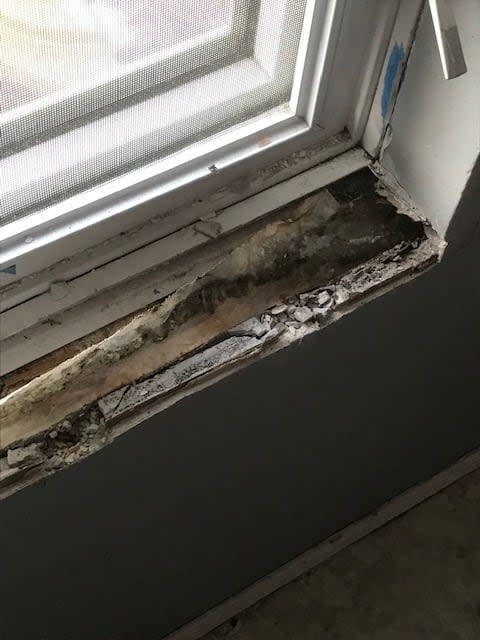Black mould discovery prompts closure of women's shelter in northwestern Alberta

The discovery of black mould in the Peace River Regional Women's Shelter means staff can't house women and children escaping violence at home until at least March.
Families staying at the shelter were immediately relocated in late November after the mould was found on the building's second floor while contractors were replacing windows.
Subsequent investigations found black mould in the basement where the building's three furnaces are located.
A health and safety assessment found the first floor of the building was safe for staff to continue their work doing outreach and providing what services they can. But the shelter can't take anyone in.
Carol Van Slyke, chair of the shelter's board of directors, said staff had to turn away 13 adults and 11 children in the first two weeks of the closure. The closest shelter is in Fairview, about 80 kilometres west.
Van Slyke said she is worried about January, the busiest time of the year for women's shelters.
"We feel terrible with the fact that we're not going to be available to house people," she said.
Black mould can cause health problems, especially for people with existing respiratory conditions such as asthma
Preliminary estimates suggest remediation and repair of the shelter will cost at least $380,000.
Van Slyke said the bill will likely be higher as the full extent of the damage still isn't known. Workers still need to open up the walls around more of the windows and the formal estimate for the basement still isn't complete.
Just making do
Work is starting right away but lack of money is a problem. The board has reached out to the provincial government, the Town of Peace River, local counties and First Nations for help.
Van Slyke remains optimistic that governments and people in the community will step up.
"Whether it's at the provincial level, whether it's at the municipality level, whether it's at the town level, we have faith that they will help it in whatever way they can," she said.
Ashli Barrett, press secretary for Children and Family Services Minister Searle Turton, said the ministry is talking with Peace River Regional Women's Shelter about their plans and what support is required.
"Anyone seeking shelter during the temporary closure will receive supports, and no one will be turned away without being offered help," she wrote.
The Alberta government has pledged $10 million over four years to women's shelters. Discussions are underway about how to best use that money.
Jan Reimer, executive director of the Alberta Council of Women's Shelters (ACWS), said aging shelter stock is an issue across the province. She said funding for maintenance dried up for a decade when money was redirected toward the 10-year plan to end homelessness by 2019.
"Shelters really were starved over that decade," she said. "I think maybe $250,000 was all that was allocated for a very long time for women's shelters in Alberta."
Last month, ACWS released a report showing Alberta shelters are reporting the highest number of calls for help in a decade. The report found instances where people are turned away due to lack of space have gone up 32 per cent.
Reimer said she would like to see the province provide better funding to help stabilize the sector.
"Running a shelter in 2024 on 2014 dollars means you're, you know, you're operating with 25% less at least than what you had before," Reimer said. "We have asked the government to please, you know, give us the increases to deal with inflation."
Van Slyke said funding constraints meant maintenance on the shelter occurred on a patchwork basis depending on the urgency or what grants were available. So regular upgrades, like a person would do for their home, fell by the wayside.
"Everything seems more important if you're short on cash," she said. "They can just make do."
